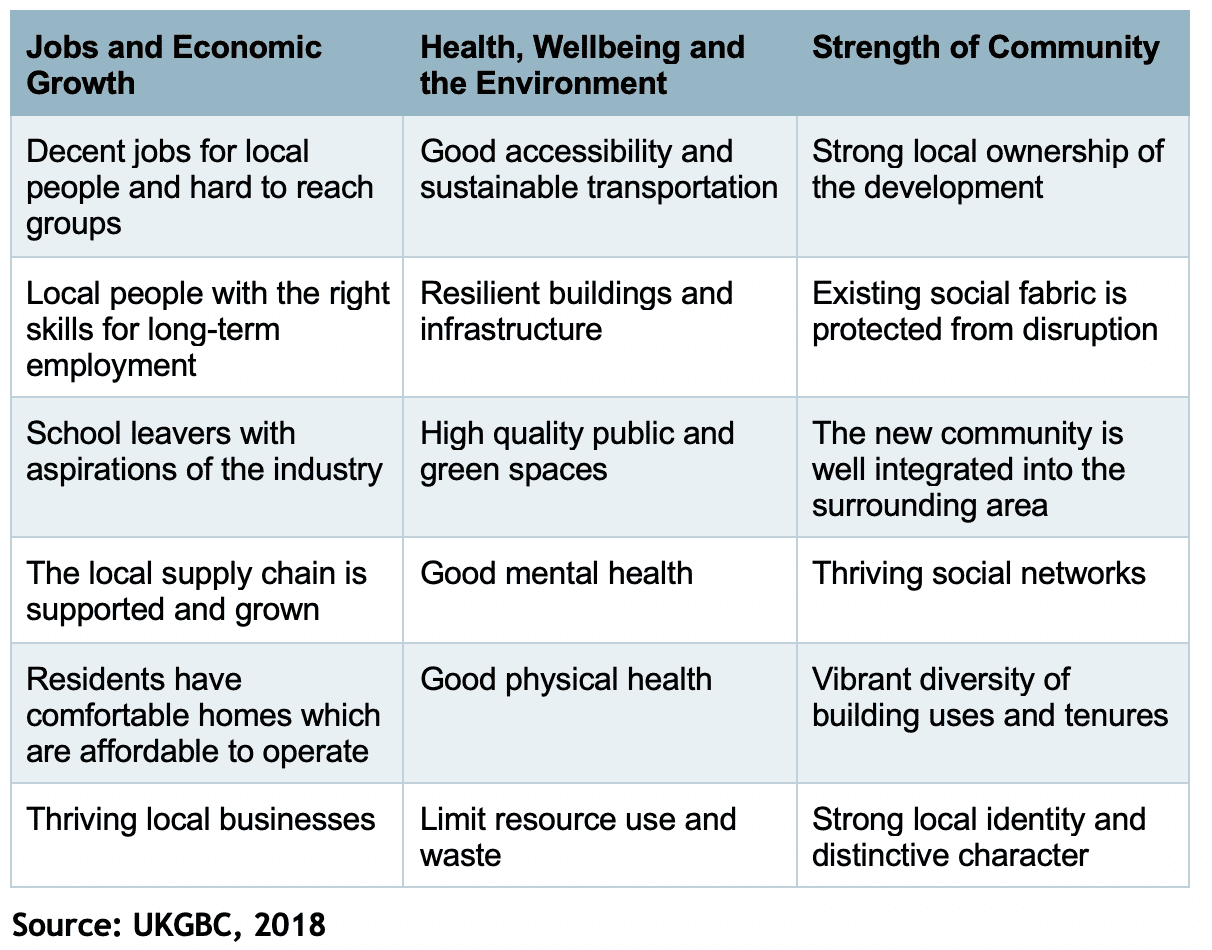
Thought
Social Value Part 1: What is social value?
Social Value is the quantification of positive public benefits and outcomes. It originates from a collection of principles aiming to improve health, wellbeing, quality of life, and communities[1].
Social Value is considered in a variety of industry sectors, but recent uptake in the built environment has been sharp, and the future is focused on developing implementable social value strategies for commercial real estate.
Key factors for Social Value in the Built Environment
Social Value has been brought to the forefront of planning requirements by The Public Services (Social Value) Act (2012). The Act gives no official definition or guidance on what process could be followed to implement Social Value. However, research from the U.K. Green Building Council (UKGBC) into Social Value provides comprehensive guidance into the most relevant aspects for development projects.

How do we measure Social Value?
The most asked question in Social Value is ‘how do we measure this?’ Answered simply, Social Value is typically measured by the following 3 methods.
· Fiscal, including Social Return on Investment (SROI)
· Numerical quantification e.g. = number of people affected x outcome of action
· Qualitative (storytelling)[2].
Social Value: Nice to have or must-have?
The rising global population means that the 3.5 billion people currently living in the world’s urban centres is set to increase. By 2030, this number set to rise to 4.9 billion. As the population grows and our cities become ever closer together, the challenges of living and working comfortably alongside each other are increasing. Understandably, government, the public and investors now expect more from those shaping our built environment. Unforgotten though, is that the built environment is a for-profit industry. It is therefore important to many that sustainability actions can be quantified with financial returns[3]. Social Value reporting gives us an updated set of sustainability principles and a way of quantifying them.
EVORA is now supporting our clients to develop and deliver Social Value programmes. You can read more about this topic in our next blog post in the series ‘5 key challenges for Social Value in Real Estate’.
Alternatively, please don’t hesitate to get in touch if you would like to discuss Social Value in more detail.
[1]Baldwin, C. and King, R. 2018. Social Sustainability, Climate Resilience and Community-Based Urban Development. 1st ed. London: Routledge.
[2] Maas, K. and Liket, K. 2011. Social impact measurement: Classification of methods in Environmental management accounting and supply chain management (pp. 171–202). Dordrecht: Springer.
[3]Emerson, J. 2003. The blended value proposition: Integrating social and financial returns. California Management Review, 45(4), pp.35–51. doi:10.2307/41166187













